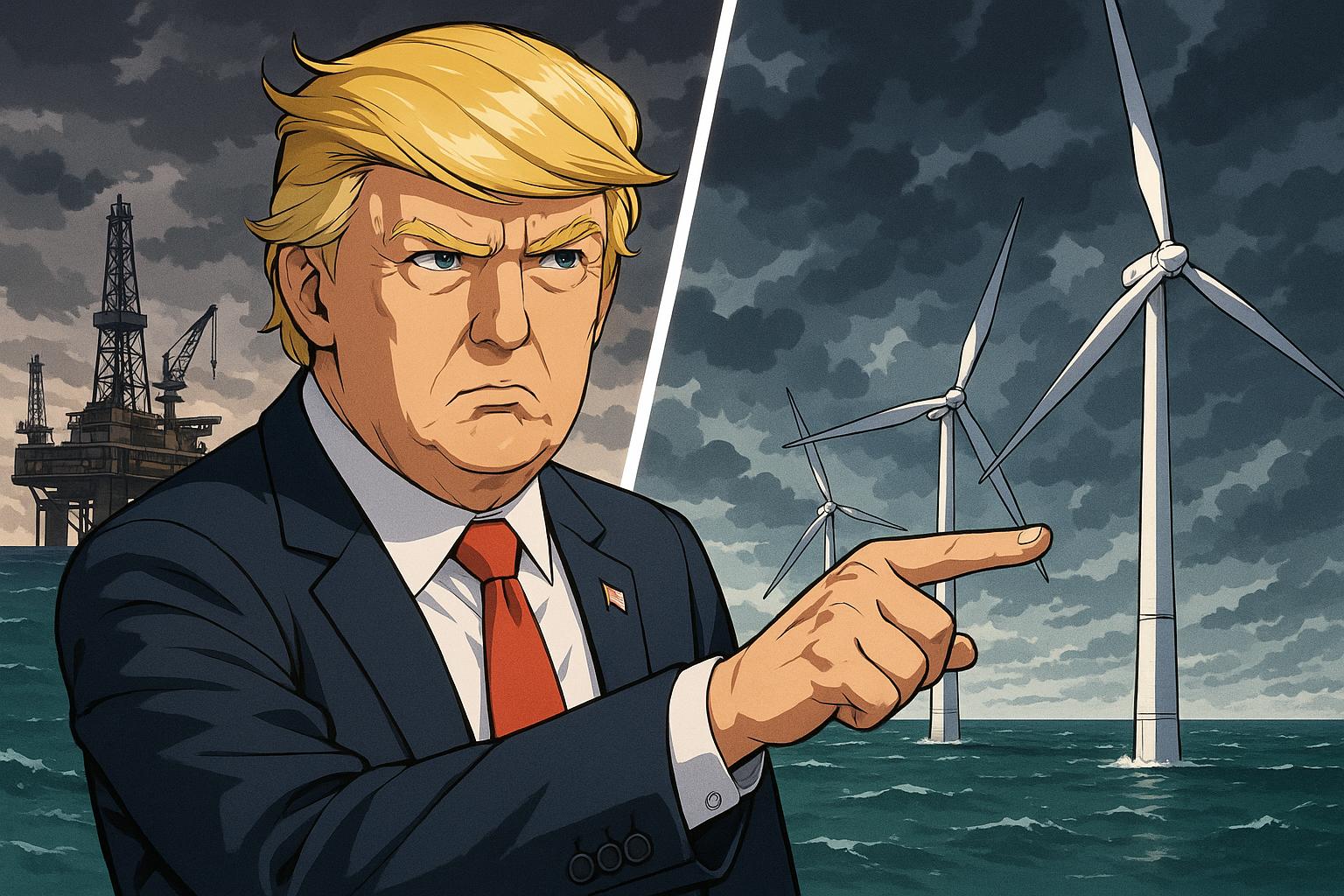U.S. President Donald Trump's recent remarks urging the UK to abandon its wind energy focus in favor of increased North Sea drilling have sparked significant debate on this side of the Atlantic. Trump has derided the UK's investment in wind farms as "costly and unsightly," instead advocating for a shift towards oil drilling that he claims could drastically reduce energy costs for British consumers. He asserted on Truth Social, “Our negotiated deal with the United Kingdom is working out well for all... I strongly recommend to them, however, that in order to get their energy costs down... incentivize modernized drilling in the North Sea.”
This assertion follows a new trade agreement between the U.S. and the UK, which eliminated tariffs on British automobiles, steel, and aluminium in exchange for greater access for American products. While this deal signifies a strengthening economic bond, it starkly opposes the energy strategy pursued by the newly minted Labour government under Prime Minister Keir Starmer, who aims to double onshore and quadruple offshore wind capacity by 2030 in an effort to push for a net-zero energy system. Ironically, Starmer's approach seems to disregard immediate economic pressures faced by the British public.
Trump's call to expand oil drilling reignites vital discussions about the UK's energy future, particularly regarding the North Sea, a region that has seen declining output since the early 2000s despite being one of the largest oil and gas producers globally. Proponents of fossil fuels, including certain factions within the UK, argue that the current regulatory landscape stifles investment in oil extraction, pointing to the planned exit of companies like APA Corporation from North Sea operations by 2029 due to soaring operational costs. A reevaluation of policies around oil drilling could be crucial for revenue generation and energy independence.
In stark contrast, the Labour government's commitment to ending new oil and gas extraction licenses reflects a definitive pivot towards green energy, which is steeped in idealism but arguably lacks practical grounding. While Labour touts a just transition to renewables as key to environmental sustainability and economic regeneration, critics from conservative factions and within the fossil fuel industry warn against jeopardizing domestic energy production, echoing sentiments that could resonate with many voters still concerned about rising energy costs.
U.S. Energy Secretary Chris Wright's recent comments reveal a widening rift between the two nations. During a London conference, he characterized Britain’s ambitious net-zero targets as "sinister," asserting that such policies adversely affect living standards while failing to deliver anticipated benefits. This critique taps into a broader sentiment that growing government regulations may hinder economic recovery, further complicating the UK’s aspirations for sustainability amidst ballooning energy prices.
As the UK seeks to strengthen its renewable energy infrastructure, Trump's fossil fuel advocacy offers a stark contrast to ambitious climate initiatives. It highlights an essential dialogue about the tension between immediate economic needs and long-term environmental commitments, a discussion that will likely escalate as both countries confront their energy dilemmas. Ultimately, this moment signals a critical juncture that could shape future energy policies and public sentiment, especially as many citizens appear to be prioritizing reliability and affordability over lofty green targets that may threaten their financial well-being.
As these two nations embark upon contrasting energy strategies, the varying leadership visions will undoubtedly mold the narrative around energy production in the years ahead, influencing economic dynamics and environmental realities alike.
Source: Noah Wire Services
